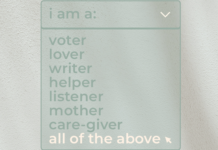If you want to improve your ability to read someone else’s mind, stop thinking about yourself. Research shows that engaging with fictional characters through literature and on screen is a great way to boost emotional intelligence. Stories help us better understand the inner lives of others and offer an alternative narrative to our own. As Atticus Finch, observes in To Kill a Mockingbird:
“You never really understand a person until you consider things from his point of view … until you climb into his skin and walk around in it.”
High-quality stories on screen or on the page requires us to stretch beyond ourselves and to imagine what it is like to be someone else. In relating to these characters and reflecting on their choices, we learn about them and, in the process, gain some insight about ourselves and the people we meet in real life.
A magnificent speech by Tom Hanks highlights how stories expand our world and stretch our minds:
That fantastic, glorious effort that goes into capturing moments in time that are real and accurate and make audience members think, “That’s like me! I wonder what I would do in those same circumstances?” As a little kid in the movie theater and as a 60-year-old man now, when I sit down in front of the screen and see it happening before me, I always ponder that question: “What would I do if I was in the circumstances of that man, that woman, that child, that android?”
Every time we read a work of literary fiction or watch a character on the screen, a little door opens within us and we get to pretend we are someone else. “Be yourself” is well-intentioned advice, but bear in mind that, at times, the best version of yourself may be when you are inspired by a character or, may I add, a spider, in a story. I just read Charlotte’s Web to my children and her dying words to Wilbur are everything:
“After all, what’s a life anyway? We’re born, we live a little, we die. A spider’s life can’t help being something of a mess with all this trapping and eating flies. By helping you, perhaps I was trying to lift up my life a trifle. Heaven knows, anyone’s life can stand a little of that.”
Here are a few of my favorite books:
My Mrs. Brown: A Novel by William Norwich
The Expatriates: A Novel by Janice Y. K. Lee
The House of Mirth by Edith Wharton
Dead Wake: The Last Crossing of the Lusitania by Erik Larson
The Machine Stops by E.M. Forster
Memoirs of a Polar Bear by Yoko Tawada
I wish you all the best,
Dr. Samantha Boardman






